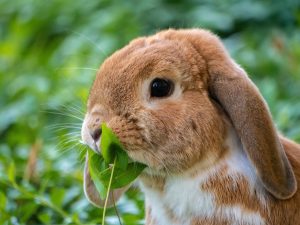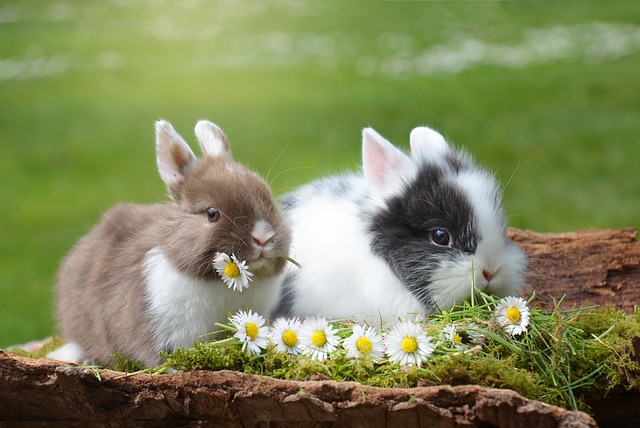Baby Rabbit Nutrition: The Ultimate Guide to Raising Healthy Bunnies
When Mary brought home her first baby rabbit, a fluffy white bundle of energy named Prinkler, she was happy to have a close friend. However, within days, Mary noticed Prinkler wasn’t as lively as before. Panicked, she contacted her local vet, who asked a simple yet crucial question: What are you feeding her? Then Mary realized that baby rabbit nutrition isn’t just about feeding them—it’s about giving them the right diet to thrive.
If you’re a new or aspiring bunny parent like Mary, this guide will provide the essential knowledge to ensure your baby rabbit grows up healthy, strong, and full of life.
Our goal is to assist you in providing the best rabbit food and nutrition for your baby rabbits so they can start jumping and bouncing up every day.
Understanding Baby Rabbit Nutrition

When you take a closer look at bunnies and realize that the baby rabbits have delicate digestive systems that require careful attention to their nutritional needs. A balanced diet supports their rapid growth, gives them strong bones, and boosts their immune system. It’s important to provide them with the right mix of hay, fresh vegetables, and pellets at appropriate stages of their growth.
The Best Diet for Baby Rabbits
1. Hay: The Foundation of a Bunny’s Diet
Giving your rabbit hay will not only make them stronger but healthy as well. Hay, particularly timothy hay or alfalfa hay, is one of the best of a rabbit’s diet.
Read More: What to Feed Pregnant Rabbits for Good Health
For baby rabbits under 6 months, alfalfa hay will be the best choice because it is rich in calcium and protein, supporting their growing bodies. Give them a good amount of hay daily, as it helps in proper digestion and keeps their teeth healthy.
How to Use: Place hay in a clean, dry area of their hutch or a hay rack to encourage regular nibbling. Keep it clean to avoid bacteria infections and other related health issues.
2. Fresh Vegetables: Introducing Variety
Once your baby rabbit is 3 months old, you can begin to give a reasonable number of fresh vegetables gradually. Leafy greens such as romaine lettuce, parsley, and cilantro are excellent choices. These vegetables provide essential vitamins and hydration.
How to Use: Start with small amounts, introducing one type of green at a time to monitor for any adverse reactions.
3. Pellets: A Concentrated Source of Nutrition
Specially formulated rabbit pellets are an important part of baby rabbit nutrition that cannot be ignored in every diet plan. They provide essential nutrients that are difficult to get from hay and vegetables alone. Opt for high-quality pellets made with natural ingredients.
Get good pellets for your rabbit if you want them to be healthy and make them stronger all the time.
How to Use Pellets for Your Baby Rabbits:
Feed about 1/8 cup of pellets daily for baby rabbits, adjusting as they grow. Avoid overfeeding to prevent obesity. Don’t give too much of pellets, which may result in other health challenges.
Fresh Water: The Essential Hydrator
How many times do you provide them with water? Giving them clean, fresh water will help them adapt to all weather conditions and also avoid dehydration. Dehydration can lead to serious health issues, so check their water supply daily.
Provide water in a sturdy bowl or a bottle with a sipper tube to ensure consistent access. Make sure the sturdy bowl is clean and washed with soap nicely to avoid infections.
Foods to Avoid Given to Your Baby Rabbits
Not all foods are safe or good for baby rabbits. Avoid the following:
- Starchy foods like bread and pasta.
- Sugary treats, including fruits having too much sugar, until they are older.
- Toxic vegetables such as onions, potatoes, and rhubarb.
Monitoring Your Rabbit’s Health
It’s important to monitor your rabbit’s behavior and droppings to ensure they’re digesting their food properly. Small, firm, round droppings are a sign of good health. If you notice changes, consult a vet immediately.
With good monitoring, you will be able to know what is worrying your baby rabbits, especially when their eating habits change.
Any owner without supervision is likely to lose some of his bunnies without knowing the cause. Are you monitoring them well? Then you are a hero.
Conclusion
Providing proper nutrition for your baby rabbit is a rewarding journey that sets the foundation for a happy and healthy life. By focusing on a balanced diet of hay, vegetables, and pellets while avoiding harmful foods, you can raise a thriving bunny like Alice eventually did with Snowy.
Are you ready to take the first step towards enhancing your baby rabbit nutrition today?


1 Comment
Pingback: Top 10 Dwarf Rabbit Breeds: Characteristics and Growth Tips